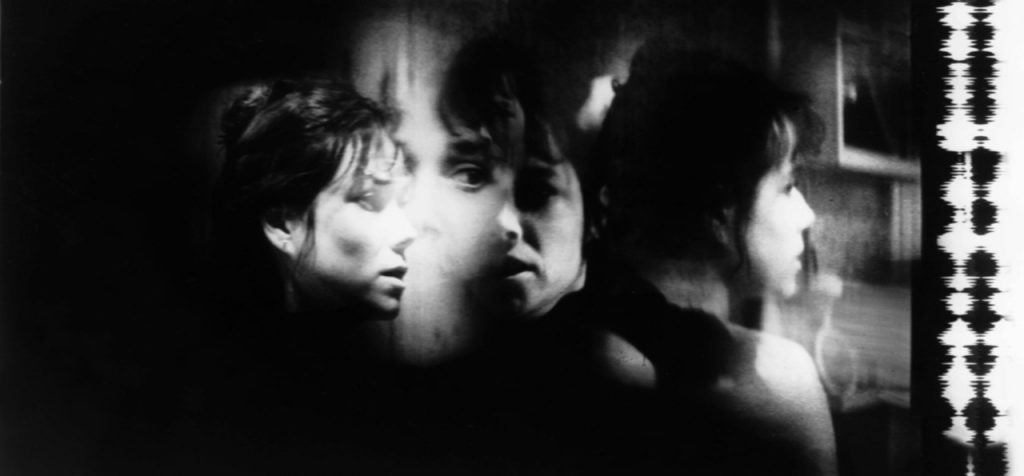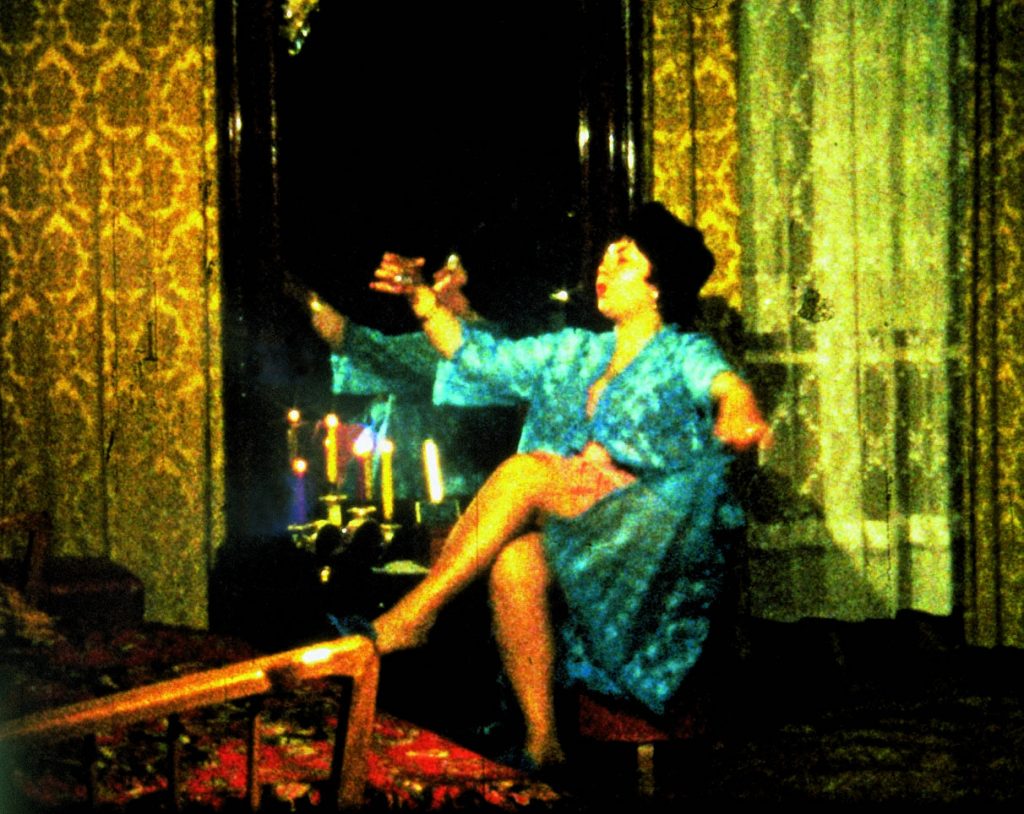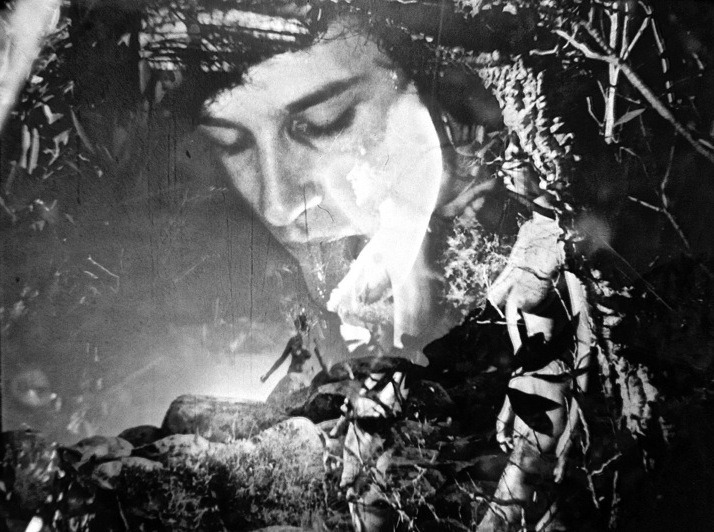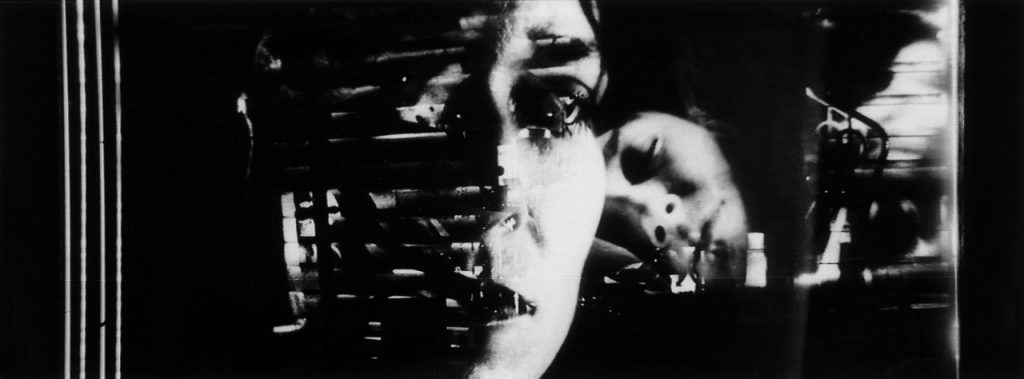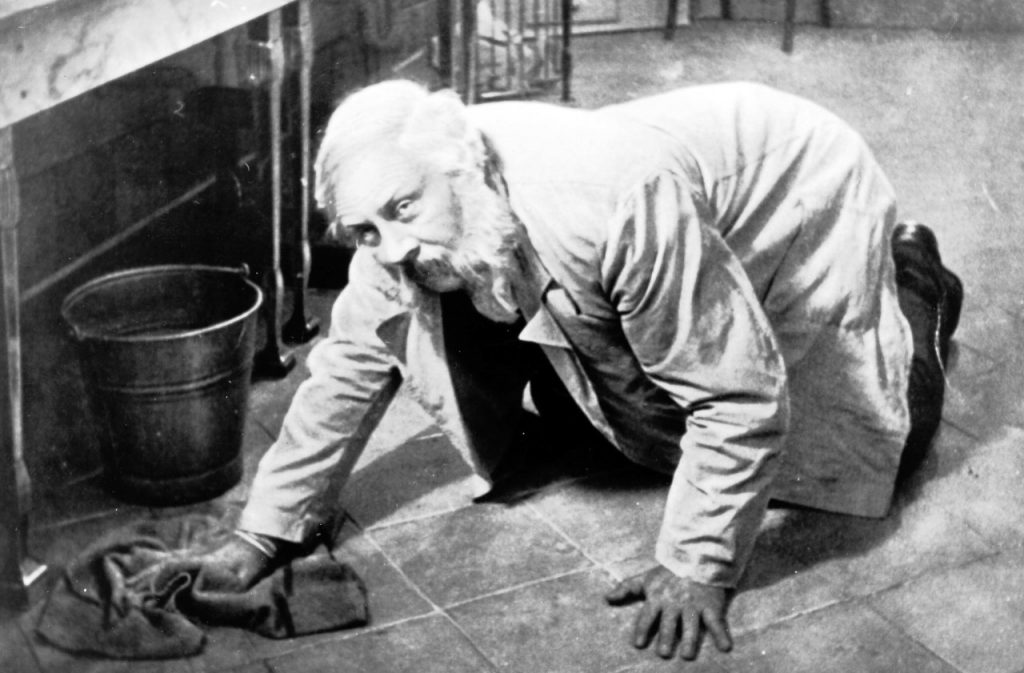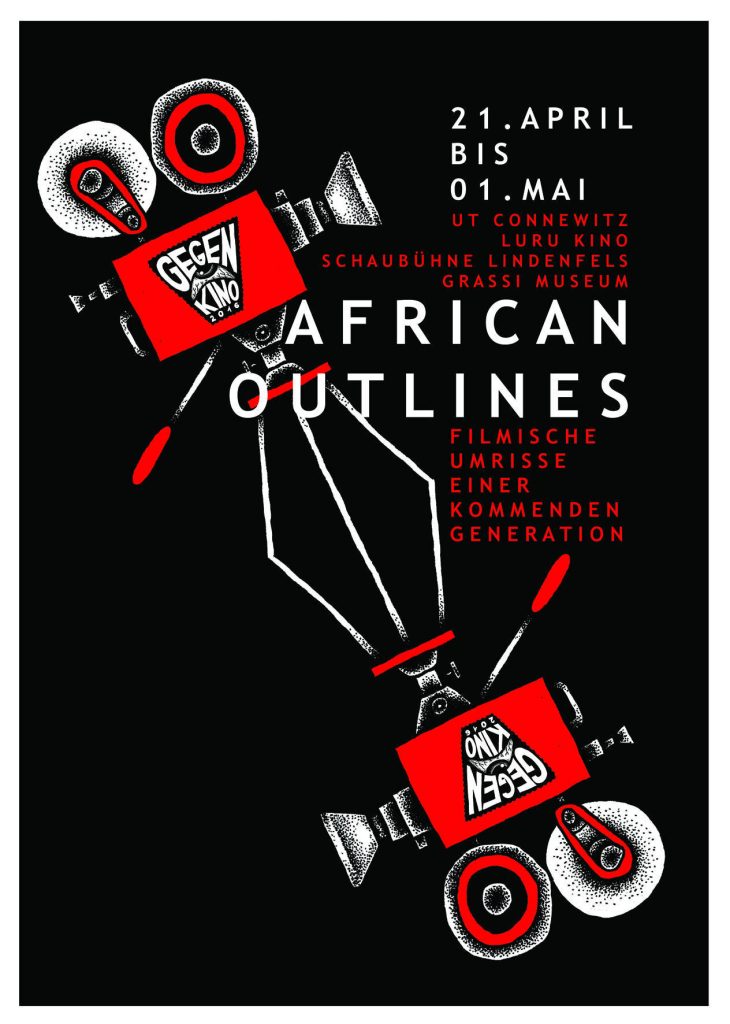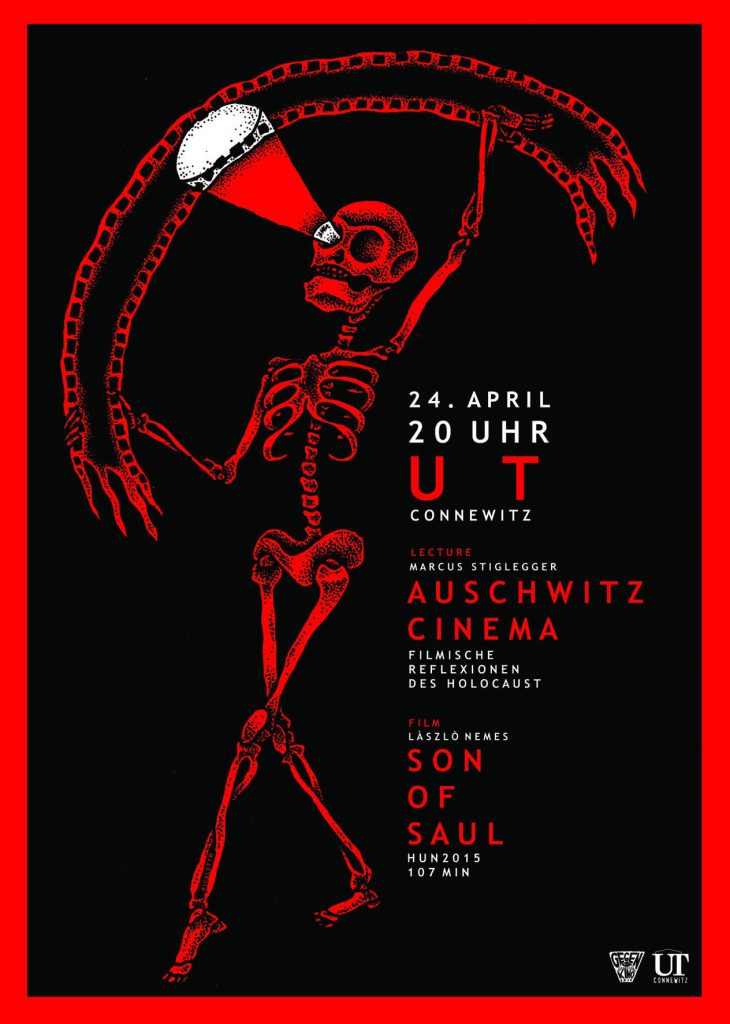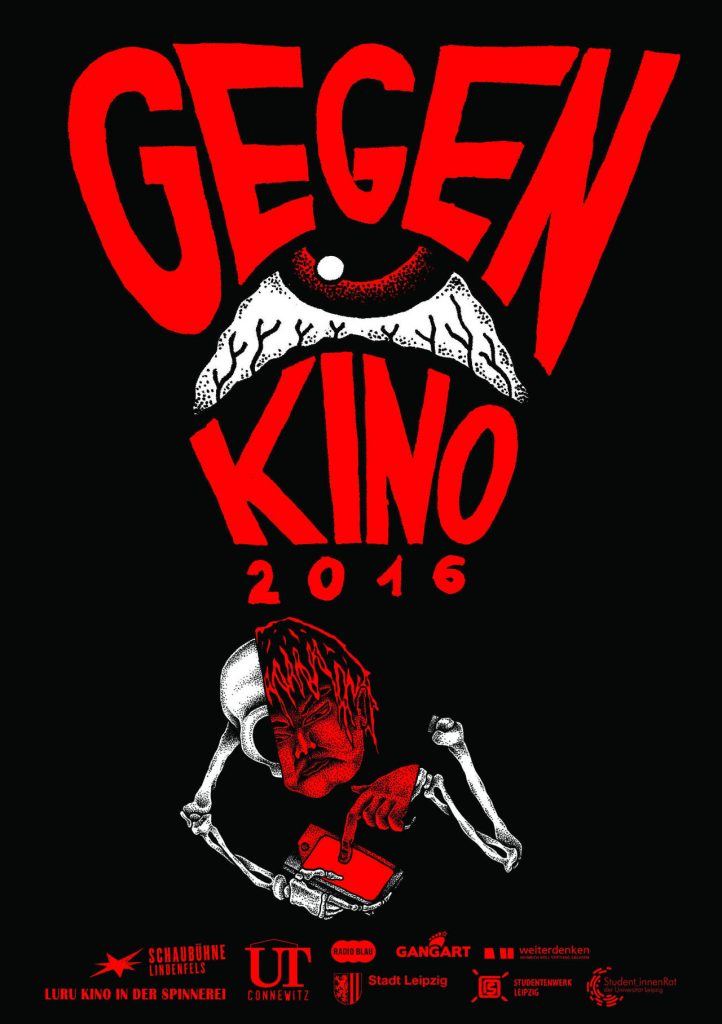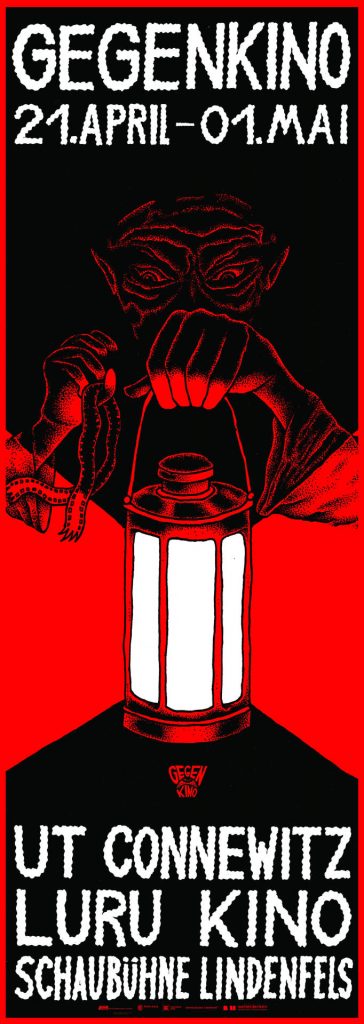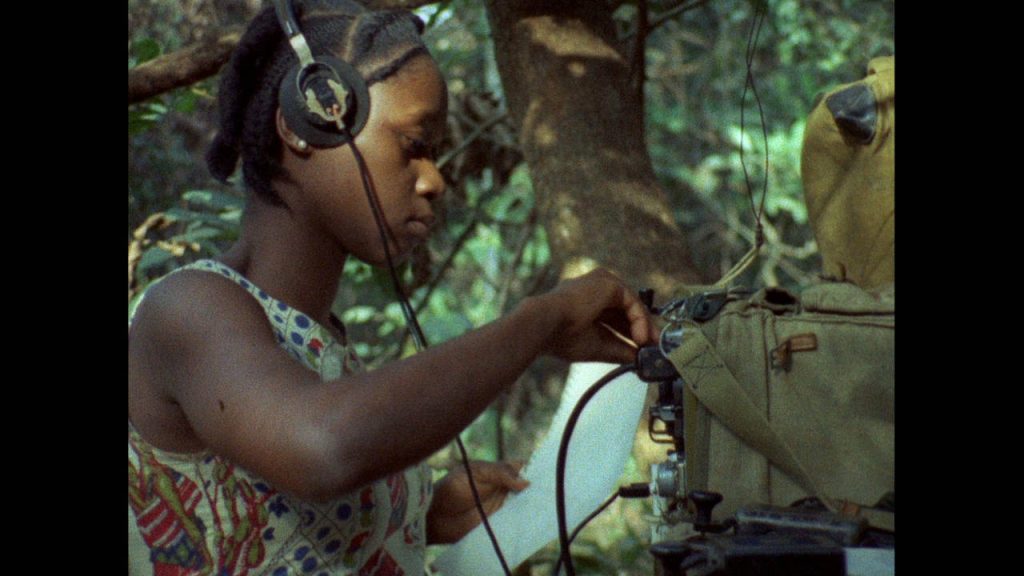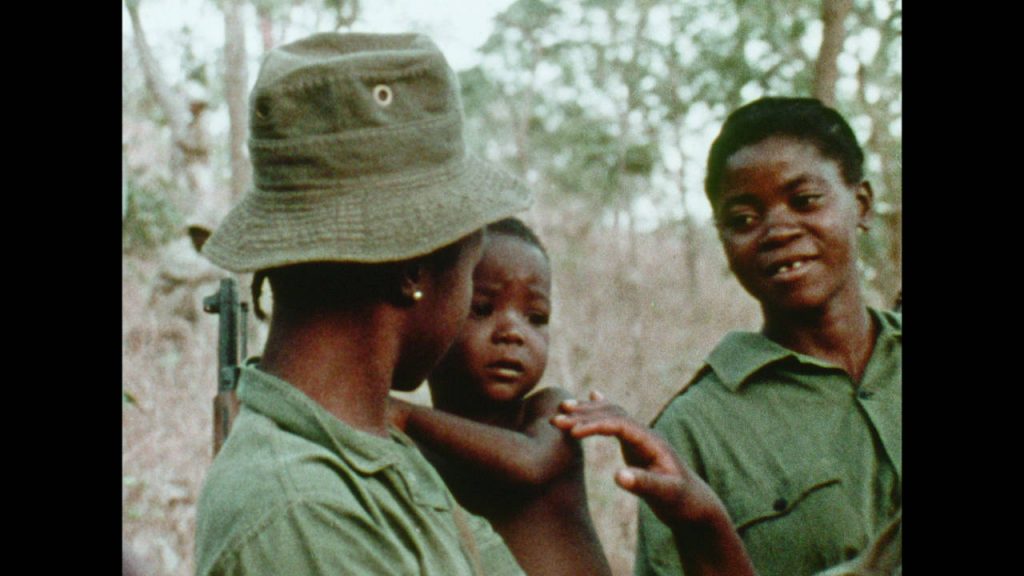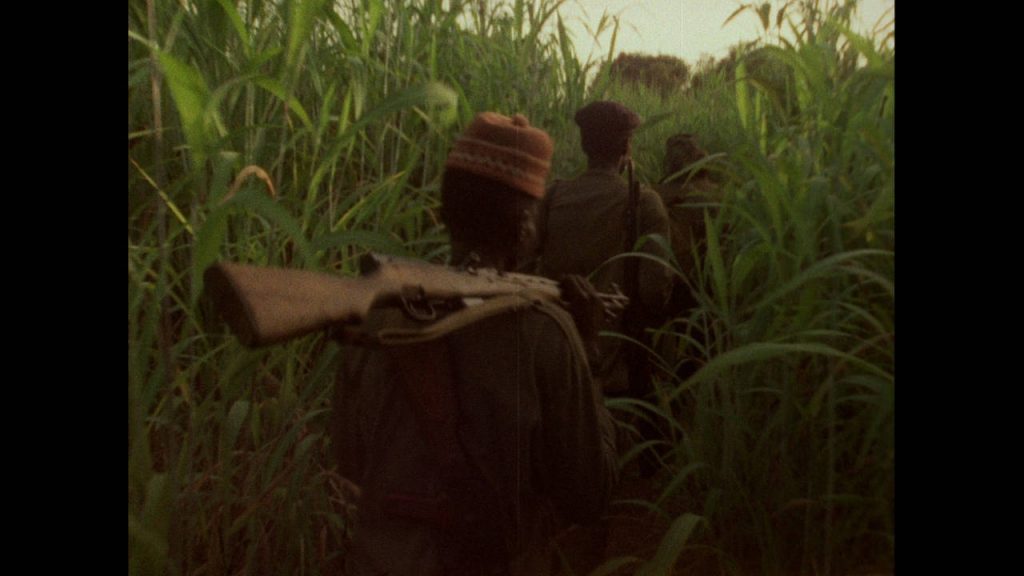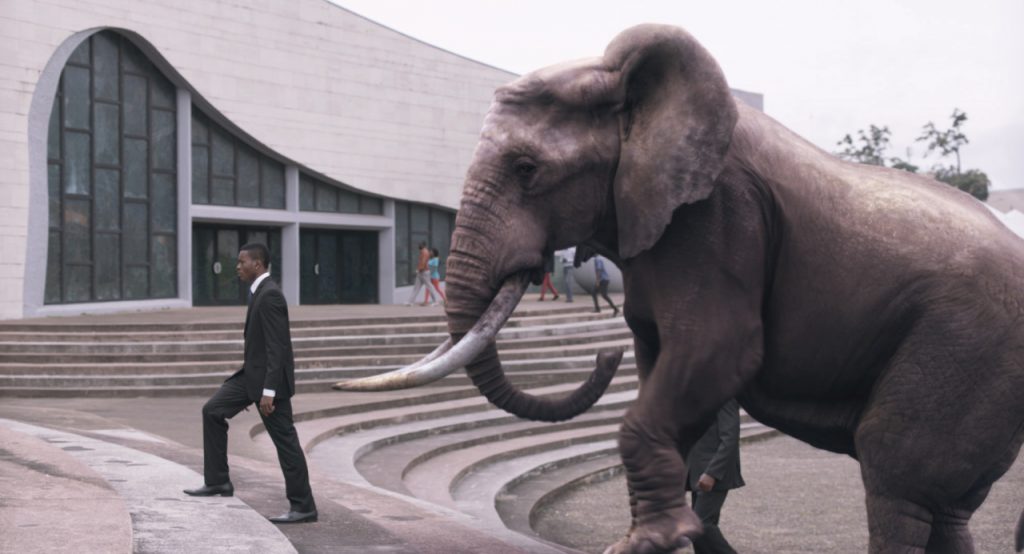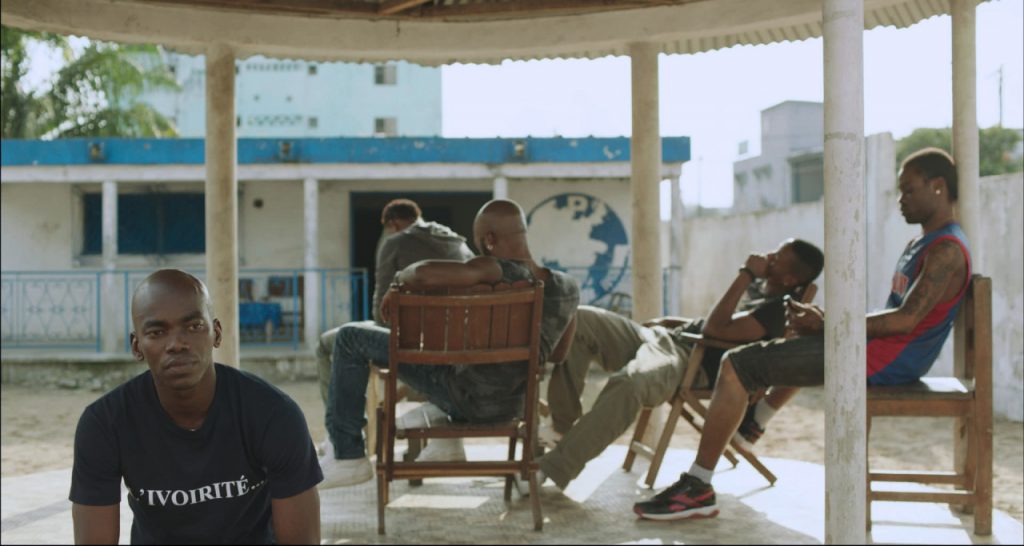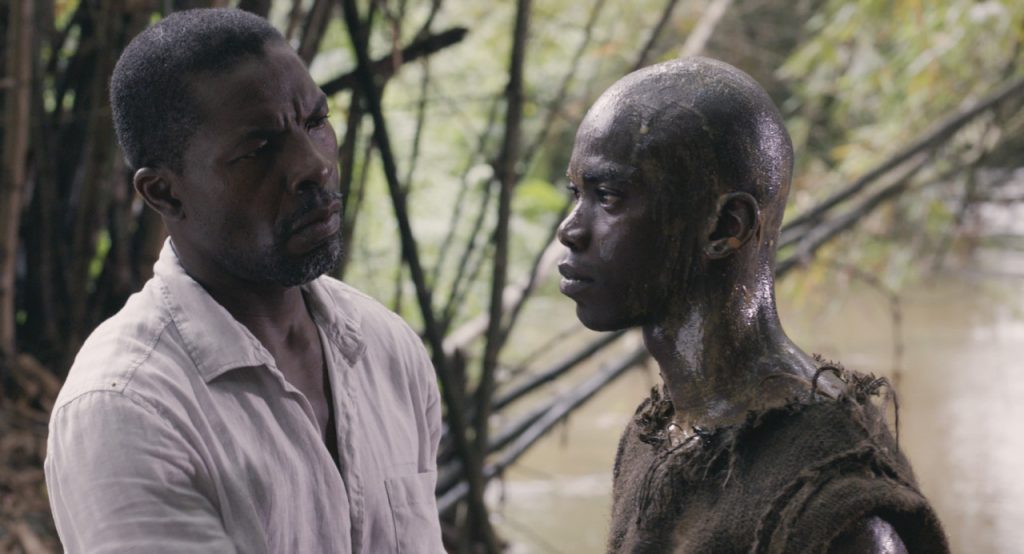Only one week left until GEGENkino #3! So here’s the second last item in our programme: After our homage to Harun Farocki in 2014 and the one to Hito Steyerl last year, we will pay tribute to another director that we greatly admire.In this year, it will be the Austrian experimental filmmaker and analog film artisan Peter Tscherkassky, out of whose œuvre we will present a selection of short films. Of course, GEGENkino wouldn’t be the festival it is, if we weren’t trying to also pay tribute to the cinema itself. Therefore, we will screen Tscherkassky’s films in glorious 35mm! A rare thing to behold!
Peter Tscherkassky: raw material and the celebrating of an absolute cinema
Peter Tscherkassky’s films provoke the viewers with the rough changes of light and dark, sound and silence. Being an achieved analogous craftsman, the Austrian experimental filmmaker copies and recycles found footage, for example minor scenes from horror films, into new intriguingly uncanny compositions. In doing so, his internationally highly acclaimed works not only test the limits of film’s raw materiality through audio processing and multiple exposure, but rather attempt, pursue and shift traditional viewing habits and auditory abilities generally. The heart of his works touches on the pivotal understanding of cinema: it’s about the film itself, its materiality plus the codes that determine its cultural present. Tscherkassky draws inherently slumbering ghosts of the future from obsolete, analogue film material. The results frenetically approach something that defies a description and has to be seen—in the cinema hall, accompanied by thickest darkness and fierce sound.
Happy-End (AT 1996, 11’, 35mm)
Cinemascope Trilogie(AT 1997-2001) [L’Arrivée (1997, 3’, 35mm) / Outer Space (1999, 10’, 35mm) / DreamWork (2001, 11’, 35mm)]
Instructions for a Light and Sound Machine (AT 2005, 17’, 35mm)
The Exquisite Corpus (AT 2015, 19’, 35mm)
25April, 9pm – Luru-Kino at the Spinnerei – 6,5/5,5(red.)euros
Director Peter Tscherkassky is requested for a talk.
C’est Les Trucs!
The dada synth-punk duo from the Knertz Collective will come to GEGENkino festival and present their most recent project—a live score for F. W. Murnau’s classic
TheLastLaugh—on 27April
at UT Connewitz.
If you know the band’s music you can
guess that this performance will be quite different from your usual
pianist-adds-live-score-to-Metropolis-or-whatever events.
Prepare yourselves!
And if you want to spoil the surprise for you, have a look here:
Les Trucs add live score to The Last Laugh
(GER 1924, D: Friedrich Wilhelm Murnau, A: Emil Jannings, Maly Delschaft, 90’, silent, BluRay)
“Today you are first and best, respected by everyone, a minister, a general, maybe even a prince— do you know what you will be tomorrow?”—with these words Murnau’s Weimar classic TheLastLaughopens up and then goes to tell a story of social decline. The main character, played by Emil Jannings, climbs down the career ladder and, formerly a concierge of good standing, he becomes a lavatory attendant. Not only regarding the narrative and acting the film is committed to the expressionist film language prevalent in the 1920s, but also from a technical point of view. For the first time in film history, cinematographer Karl Freund turns loose the “unleashed camera”: from now on, in cinema, not only images and characters are moving, but also the view now wanders through space.
Aided by synthesisers, sequencers and various sounding devices, Charlotte Simon and Zink Tonsur alias LesTrucs will enrich Murnau’s silent film with live sound in the hall of UT Connewitz. Music and performance of this duo are full of a Dadaist spirit. Everyone present will have to accept the fact that what is happening before one’s own eyes and inside one’s own ears cannot even roughly be described. Wonderful it is at least. If Murnau will show his magnificence on screen, it is rather unlikely that LesTrucs will withdraw themselves in their performance in front of the screen.
27April, 9 pm – UT Connewitz – € 12/10 (red.)
Here’s Ricaletto’s designs for this year’s GEGENkino poster as well as for our flyers – in new and shiny colours!
Keep your eyes open while walking through the city and see the life-size versions of them!
Flashy!
On Friday, 22 Apr, 7pm and in cooperation with the GRASSI Museum of Ethnography we will screen »Concerning Violence« by Göran Hugo Olsson, whom you may know as the director of »The Black Power Mixtape 1967-1975«. Even though this is not particularly African cinema, »Concerning Violence« is more than relevant with regard to the issues we want to address and discuss in the AFRICAN OUTLINES section. The film, which carries the subtitle »Nine Scenes from the Anti-Imperialistic Self-Defense« is, for one part, a filmic involvement with the ideas of one of the pioneers of postcolonialism—Frantz Fanon—, and as well a resurrection of concrete African history as director Olsson’s assembles found footage material from the archives of different African national independence movements.
Again, we are working together with AG Postkolonial Leipzig for this screening and Diana Ayeh & Natascha Bing will give an introduction and context to Olsson’s film.
Read more about the film and see the trailer below.
Concerning Violence – Nine Scenes from the Anti-Imperialistic Self-Defense
(Doc SE/FI/US/DK 2014, D: Göran Hugo Olsson, 85’, OV with German subtitles, BluRay)
With an introduction by Diana Ayeh & Natascha Bing (AG Postkolonial Leipzig)
In the light of Franz Fanon’s book “The Wretched of the Earth”, the film ConcerningViolence tells of the riots leading to the de-colonizing of Africa. New-found archive footage about the violent confrontation with colonial powers between 1966 and 1984 is combined with quotes from Fanon’s divisive text—a text that at the beginning of the 60s conceived a pan-African vision of a socialist revolution, which as a counterforce was to be directed against both colonial and imperialist oppression as well as against the new, “native” governments. Musician Lauryn Hill reads passages from the text that are displayed and that are structuring and commenting the film material. Images of the liberation movement in Angola, FRELIMO in Mozambique and the struggle for independence in Guinea-Bissau are contrasted with documentary pictures of Swedish missionaries in Tanzania and of a strike at a Swedish mine in Liberia. A look on current smouldering conflicts shows that even 50 years after Fanon’s death, the consequences of centuries-long European raids and interventions are far from being overcome along old colonial borders. (Film with a preface by Gayatri Spivak)
22 April,7pm – Grassi Museum – € 4/3(red.)
Africa is not a country.
Hence, at this year’s GEGENkino we want to show the great diversity of contemporary African cinema in our section AFRICAN OUTLINES.
On Apr 26 we will screen the film »Run«—director Philippe Lacôte’s
unique take on the First Ivorian Civil War that took place in the years
from 2002 until 2007. Diana Ayeh & Natascha Bing of
AG
Postkolonial Leipzig
will give an introduction to the movie, give some insights into the
historical context and the postcolonial concerns of the film.
We’re looking forward!
Run
(CIV/F
2014,
D:
Philippe
Lacôte,
A:
Abdoul
Karim
Konaté,
Isaach
de
Bankolé,
Djinda
Kane,
OV
with
English
subtitles,
102’,
DCP)
with an introduction
by Diana
Ayeh & Natascha Bing (AG
Postkolonial Leipzig)
Somnambulistically, a young man walks towards the Prime Minister during church service and kills him, while all the others present are sitting on their places silently and disinterestedly. Afterwards, he escapes—from his pursuers, from himself, from his dreams, and memories. Initially, it remains unclear if this is also a run for freedom. Full of twists and turns like his eponymous protagonist’s escape, Run tells its story in front of the backdrop of the Ivory Coast’s civil war, whom 3,000 people fell victim to during the years 2002 to 2007. Director Philippe Lacôte merges narrative elements of African mythology and nature mysticism with the real context of the crisis. His masterful plot reveals the biography of a freedom fighter who wanted to be a rainmaker at first, then led the life of tramp being assistant to the fair curiosity and professional contest eater Gladys before finally hooking up with the patriotic youth and commencing underground combat.
26 April, 9 pm – Luru-Kino at the Spinnerei – € 6,5/5,5 (red.)

